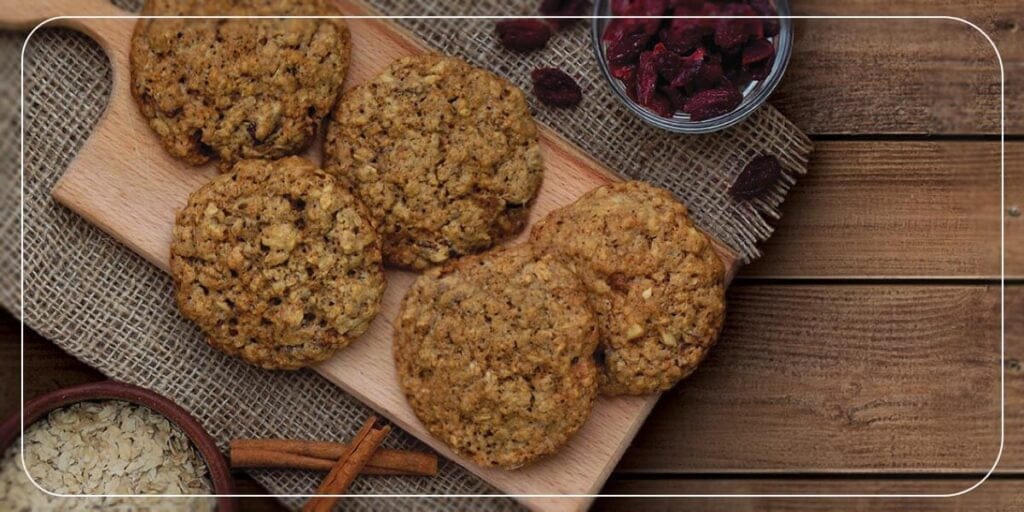Managing weight and wellness involves making thoughtful choices. You may wonder if switching from regular to sugar free cookies could aid your goals. Let’s explore the science behind these treats and practical strategies for moderate, balanced indulgence.
Comparing Nutrition Profiles
Sugar-free varieties replace sugar with alternative sweeteners like erythritol that contain few to no calories. However, they often have more fat and calories from other ingredients versus simple carbohydrates in sugar.
Specifically, typical sugar free cookies provide 130 calories, 8g fat, and 12g net carbs compared to a regular 140-calorie cookie with 24g carbs. Neither is a low-calorie choice, though sugar free cookies option spares some carbohydrate intake.
It’s important to consider a total diet, not just one treat. Moderate portions of either can fit within calorie needs when balanced with nutritious whole foods. Focus on eating mindfully without complete restriction for sustainable wellness.
Sweeteners Explained
Common sugar substitutes include sugar alcohols like erythritol and allulose, that the body absorbs differently than sugar. They contain fewer calories due to incomplete digestion but offer a similar taste.
Specifically, erythritol provides 0.2 calories per gram versus sugar’s 4 calories. It causes fewer blood sugar spikes, too. However, large amounts may cause digestive issues like bloating for some. Moderation is wise with any substitutes.
Allulose provides 0.4 calories per gram, but research links it to modest weight control when replacing sugar. Both options spare some calories versus sugar when balanced as part of varied nutrition.
The Science of Satiety

Fibre, protein, fat and water influence fullness hormones like PYY and GLP-1 that tell your brain you’re full. While sugar free cookies contain similar calories as regular, formulations with nuts, seeds or dried fruit boost these nutrients.
Research links increased fiber and protein to reduced subsequent calorie intake at following meals by up to 10%. Water content also fills out the stomach volumetrically. Sugar-free recipes emphasizing these elements may promote modest weight control when consumed mindfully as planned snacks.
However, no single food provides a magic solution. Overall, lifestyle habits matter most for healthy weight management in the long term.
Practical Strategies
Some ideas for mindfully including these cookies in your wellness routine include:
Pair with high-protein foods like Greek yogurt or nuts for more filling meals and snacks. Measure a single serving (2 cookies) to control portions and save the rest of the package. Savour cookies slowly and mindfully to better enjoy flavor versus mindless eating. Choose sugar-free varieties made with whole, nutritious ingredients when possible.
Balance occasional treats with mostly nutrient-dense whole foods and active living most days. Don’t ban any foods entirely, which can backfire by making them feel forbidden and trigger overeating later. Overall, moderation is key. A balanced lifestyle supports wellness far beyond any single food choice. Focus on overall nutrition, activity and mindfulness for sustainable success.
Alternative Sweeteners’ Impact on Metabolism
Some studies link sugar alcohols and allulose to modest metabolism boosts versus sugar when consumed in moderation. Specifically, erythritol contains 0 calories per gram, yet the body processes it, requiring minimal energy.
Preliminary evidence suggests this effect could slightly increase daily calorie burning. However, results are mixed, and any impact is modest at best. A balanced lifestyle through nutrition, activity and stress management supports metabolism far more than any one ingredient.
Mindful Eating Techniques for Treats
Slowing down, savouring flavours fully, and paying attention to physical hunger/fullness cues allow the mindful enjoyment of treats without overeating. It takes about 20 minutes for the gut to signal fullness to the brain once eating starts.
Rushing through cookies prevents this natural feedback mechanism. Chewing thoroughly, putting utensils down between bites and focusing only on eating also helps control portions intuitively. Mindful techniques support balanced enjoyment versus mindless overindulgence.
Managing Expectations
No single food provides instant, dramatic results. However, small, sustainable changes in mindset and habits deliver lasting transformation. Focus on non-scale victories like increased energy, not just numbers on a scale.
Wholesome self-talk and patience are key when making adjustments. Be kind yet committed to yourself. Overall health depends on lifestyle habits far beyond any one snack choice. Maintaining that balanced perspective prevents frustration.
Incorporating Activity
Physical activity supports health in numerous ways beyond just burning calories. It manages stress, boosts mood, strengthens bones/muscles and improves sleep – all investing wellness goals.
Aim for 30 minutes daily through activities you enjoy, like walking, dancing, sports, or yoga. Consistency is more important than intensity. Even light training provides benefits when made a regular habit as part of a balanced lifestyle.
Community Support

Connecting with others seeking wellness provides motivation, accountability and new recipe ideas for balanced indulgence. Online health groups and trackers allow the sharing of successes and troubleshooting challenges together.
Local gyms and wellness clubs also offer social support. Commit to family and friends who encourage your goals through their actions and words. Together, small changes become powerful habits that shift with help.
The Role of Macronutrients
Balancing macronutrients supports wellness goals. When consumed mindfully, sugar- ree cookies can fit within daily limits for carbs, fat and protein. Specifically, recipes using nutritious ingredients increase filling fibre, protein and fats.
Research links higher-protein diets to preserved metabolism and muscle mass during calorie reduction. Even modest increases from nut-based cookies versus simple carbs may confer benefits. However, balance across macronutrients remains most important. Overall, lifestyle habits matter more than any one food.
Read More: Importance of Vitamins in Filling Nutrient Deficiency Gaps
Hydration’s Importance
Drinking water supports metabolism, digestion and feelings of fullness. It also carries nutrients to cells and flushes waste. Even mild dehydration impacts energy and mood. Sugar free cookies made with dried fruits increase water intake versus sugary varieties. Staying hydrated also prevents confusing thirst for hunger cues.
Aim for half your body weight in ounces of water daily. Sip throughout the day, especially with meals containing fibre or protein, for optimal absorption of nutrients. Herbal teas also hydrate without extra calories. Proper hydration supports health in numerous ways.
The Gut-Brain Connection
Gut bacteria influence metabolism, immunity and even mood. A balanced microbiome promotes wellness. Fermented foods like yogurt provide probiotics to support diversity. Sugar-free cookies made with prebiotic fibre from nuts and seeds feed these good bacteria. Fiber also helps regularity, which impacts weight. Focus on prebiotic and probiotic foods as part of an overall balanced lifestyle.
Stress Management
Chronic stress impacts health in numerous ways, disrupting sleep, appetite and digestion. Manage it through activities you enjoy, social support and relaxation techniques. Aim for laughter daily and accept what you can’t control. Make time for mindful practices like yoga, meditation, deep breathing, journaling and nature time. Overall well-being depends more on lifestyle habits than any single snack choice.


